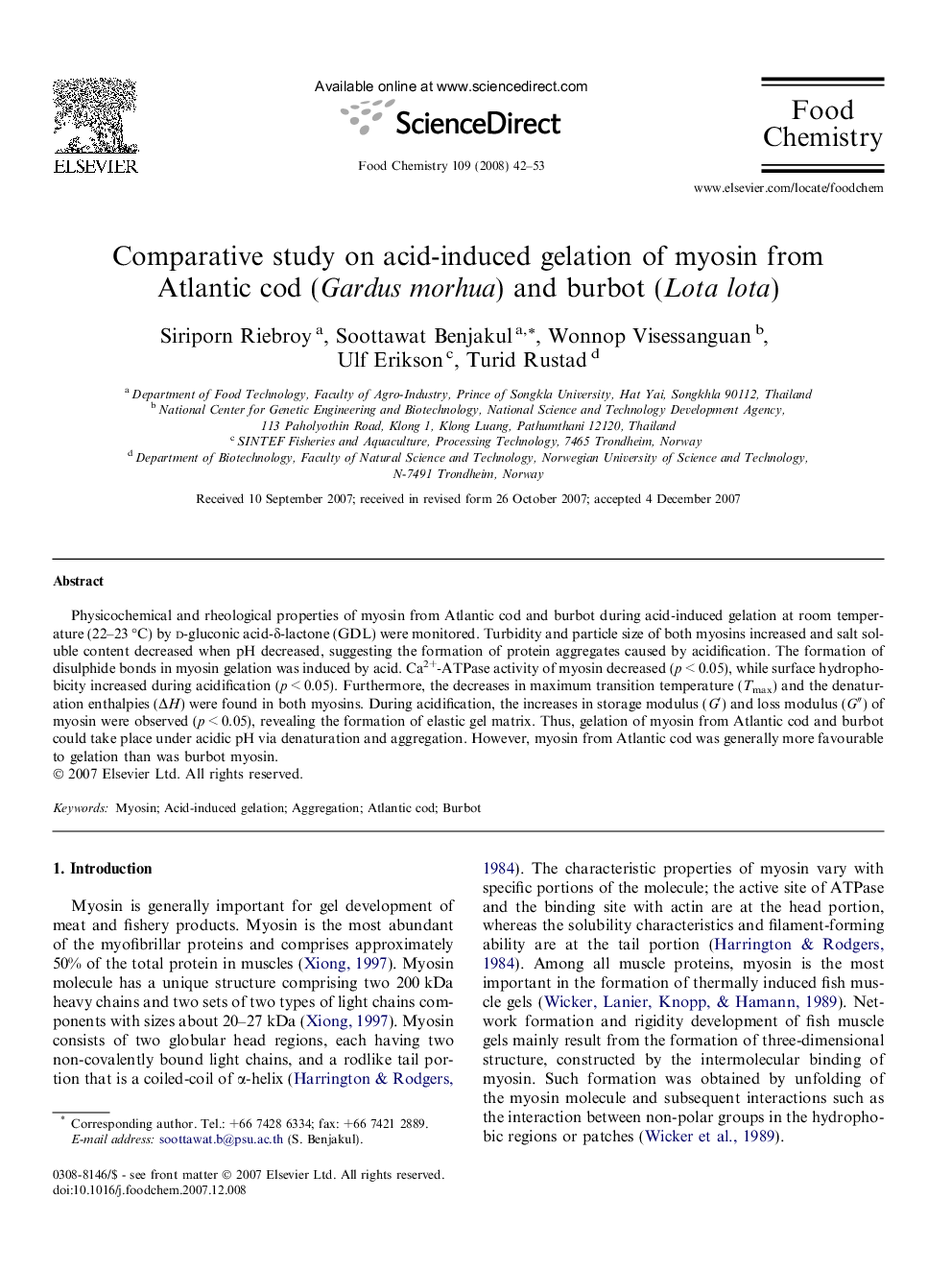| Article ID | Journal | Published Year | Pages | File Type |
|---|---|---|---|---|
| 1188568 | Food Chemistry | 2008 | 12 Pages |
Physicochemical and rheological properties of myosin from Atlantic cod and burbot during acid-induced gelation at room temperature (22–23 °C) by d-gluconic acid-δ-lactone (GDL) were monitored. Turbidity and particle size of both myosins increased and salt soluble content decreased when pH decreased, suggesting the formation of protein aggregates caused by acidification. The formation of disulphide bonds in myosin gelation was induced by acid. Ca2+-ATPase activity of myosin decreased (p < 0.05), while surface hydrophobicity increased during acidification (p < 0.05). Furthermore, the decreases in maximum transition temperature (Tmax) and the denaturation enthalpies (ΔH) were found in both myosins. During acidification, the increases in storage modulus (G′) and loss modulus (G″) of myosin were observed (p < 0.05), revealing the formation of elastic gel matrix. Thus, gelation of myosin from Atlantic cod and burbot could take place under acidic pH via denaturation and aggregation. However, myosin from Atlantic cod was generally more favourable to gelation than was burbot myosin.
